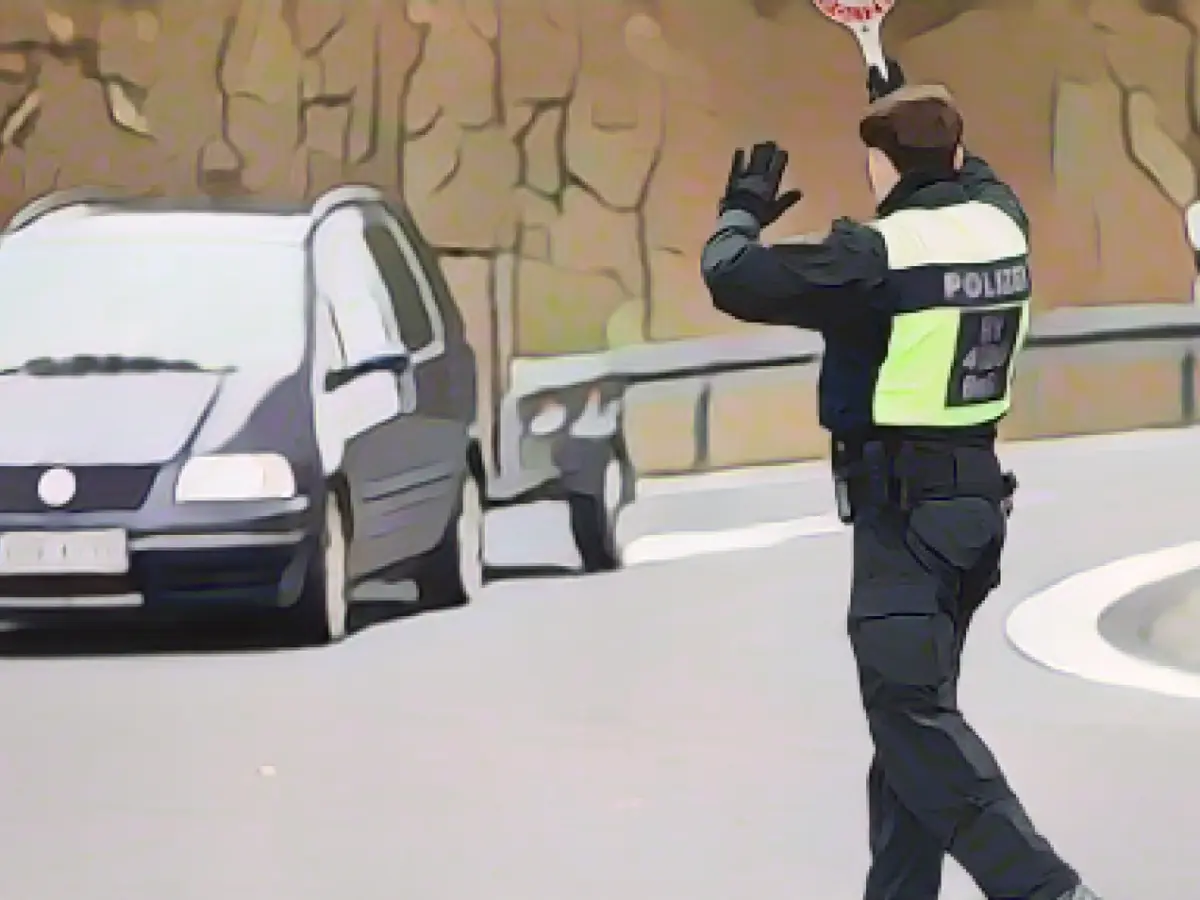Unprecedented Rise in Unauthorized Entries in Bavaria
The number of unauthorized entries into Bavaria saw a significant surge at the end of 2023 compared to the previous year. According to the Federal Police, there were 30,154 cases by October 31, 2023, surpassing the 2022 total of 29,229 instances. A spokesperson for the authorities mentioned that smugglers are exerting more aggression during their journeys, leading to frequent accidents, including a fatal one in October, which claimed the lives of seven individuals.
Smugglers on the Rise
Approximately 11,701 out of the 30,154 unauthorized entries were smugglers, according to the Federal Police. However, every smuggled individual will enter the country illegally. The number of smugglers increased by 5%, while the number of smuggled individuals surged by 181%. This trend indicates an escalation in organized crime activities, leading to unauthorized entries.
Top Sender Countries
The five most common countries of origin for these unauthorized entries in 2023 were Turkey, Afghanistan, Syria, Ukraine, and Iraq. Although Syria's numbers did not show a significant rise, the number of Turkish nationals entering without authorization saw a marked increase.
Modes of Entry
In contrast to previous years, the preferred modes of entry have significantly changed. In 2019, 36% of unauthorized entries were by car, 31% by bus, and only 22% by train. By 2023, this ratio had significantly changed; 27% of unauthorized entrants employed the train, followed by car (25%), van (13%), bus (11%), and walking (10%).
Reckless Smugglers and Increasing Criminality
Emergency vehicles are rammed, and there are frequent accidents with injuries as smugglers become more reckless while evading law enforcement. The devastating accident on the Autobahn 94 near Waldkraiburg in the fall left seven people dead and 23 injured, many of whom were children in a van.
Immigration Policies and Addressing Unauthorized Entries
Opposition leaders, like Friedrich Merz, have criticized Germany's asylum and immigration policies. Their argument is that these policies are dysfunctional and have led to a situation where "illegal immigrants" are not effectively turned away at the border, including those seeking protection. To combat this issue, there have been calls for strengthening border controls, expanding migrant detention centers, and improving coordination between federal and state authorities to process and deport asylum seekers in a timely manner.
Enhanced Patrols and Public Engagement
As the number of unauthorized entries in Bavaria continues to rise, federal police intensify their patrols along international borders, particularly focusing on the regions near Munich and Upper Bavaria. They urge all motorists in these regions to stay vigilant, reporting any suspicious activities related to smuggling or unauthorized entries to the authorities. This public engagement contributes to reducing criminality in the region.
References:
- "Bavarian-Politics" (n.d.).
- "Bavaria's Asylum and Immigration Policies under Scrutiny" (n.d.). [Enrichment Data]
Enrichment Data: The escalating trend of unauthorized entries into Bavaria is attributed to a variety of factors, as follows:
- Asylum and Immigration Policies: Opposition leaders have raised concerns about Germany's asylum and immigration policies, particularly the EU's Schengen principle of free movement. They argue that these policies are "dysfunctional" and have resulted in failing to effectively turn away asylum seekers without legitimate entry documents, including those seeking protection.[1][2]
- Deportation Delays and Administrative Failures: Administrative inefficiencies and bureaucratic delays within Germany's administrative bodies have led to perpetrators remaining in the country despite posing a threat. The case of the Aschaffenburg attack suspect, who was supposed to be deported but faced a deportation delay due to the Federal Office for Migration and Refugees (BAMF), illustrates this issue.[2]
- Political Blame Game: The incident has sparked a political blame game between federal and state authorities, with Bavarian authorities accusing the federal government of failing to deport the suspect and the federal government pointing out that deportations are the responsibility of the states.[2]
Strategies to address this rising trend of unauthorized entries include:
- Enhanced Border Controls: There have been calls for permanent border controls and a de facto ban on entry for all those without valid entry documents, which diverges from the EU's Schengen principle of free movement.[1][2]
- Detention and Deportation: Friedrich Merz has suggested expanding migrant detention centers and deporting individuals caught by police who have already been asked to leave as quickly as possible. A Merz government would provide infrastructures such as empty barracks or converted shipping containers for this purpose.[1]
- Investigations and Accountability: Federal Interior Minister Nancy Faeser has called for a thorough investigation into the reasons why the attacker remained in Germany despite committing violent crimes. She emphasized that the rule of law needs to demonstrate its strength, including authorities, police, and courts.[2]
- Coordination Between Authorities: There is a recognition of the need for better coordination between federal and state authorities to ensure that asylum seekers are properly processed and deported in a timely manner. This includes addressing the bureaucratic delays and inefficiencies that have contributed to the current situation.[2]








